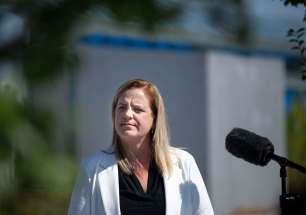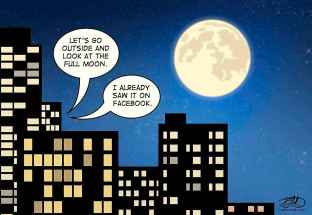Winnipeg’s Ms. Right? Well-funded and well-connected Jenny Motkaluk is serving up a suburb- and business-friendly meat-and-potatoes alternative to Mayor Brian Bowman's rapid transit-expanding, Portage and Main-opening urban fare
Read this article for free:
or
Already have an account? Log in here »
To continue reading, please subscribe:
Monthly Digital Subscription
$0 for the first 4 weeks*
- Enjoy unlimited reading on winnipegfreepress.com
- Read the E-Edition, our digital replica newspaper
- Access News Break, our award-winning app
- Play interactive puzzles
*No charge for 4 weeks then price increases to the regular rate of $19.00 plus GST every four weeks. Offer available to new and qualified returning subscribers only. Cancel any time.
Monthly Digital Subscription
$4.75/week*
- Enjoy unlimited reading on winnipegfreepress.com
- Read the E-Edition, our digital replica newspaper
- Access News Break, our award-winning app
- Play interactive puzzles
*Billed as $19 plus GST every four weeks. Cancel any time.
To continue reading, please subscribe:
Add Free Press access to your Brandon Sun subscription for only an additional
$1 for the first 4 weeks*
*Your next subscription payment will increase by $1.00 and you will be charged $16.99 plus GST for four weeks. After four weeks, your payment will increase to $23.99 plus GST every four weeks.
Read unlimited articles for free today:
or
Already have an account? Log in here »
Hey there, time traveller!
This article was published 27/07/2018 (2692 days ago), so information in it may no longer be current.
Jenny Motkaluk would like you to know something right off the bat.
“I’m not Gord 2.0,” the mayoral candidate says assertively, almost admonishingly, perched on a chair in a Starbucks at the northern-most reaches of Main Street.
“Gord” is former city councillor Gord Steeves, a right-of-centre populist who took a run at the mayoralty in 2014. His bid was, by objective standards, perhaps the worst-ever by a candidate who began the campaign with a legitimate shot at winning. He finished a distant fourth and has disappeared from political circles.
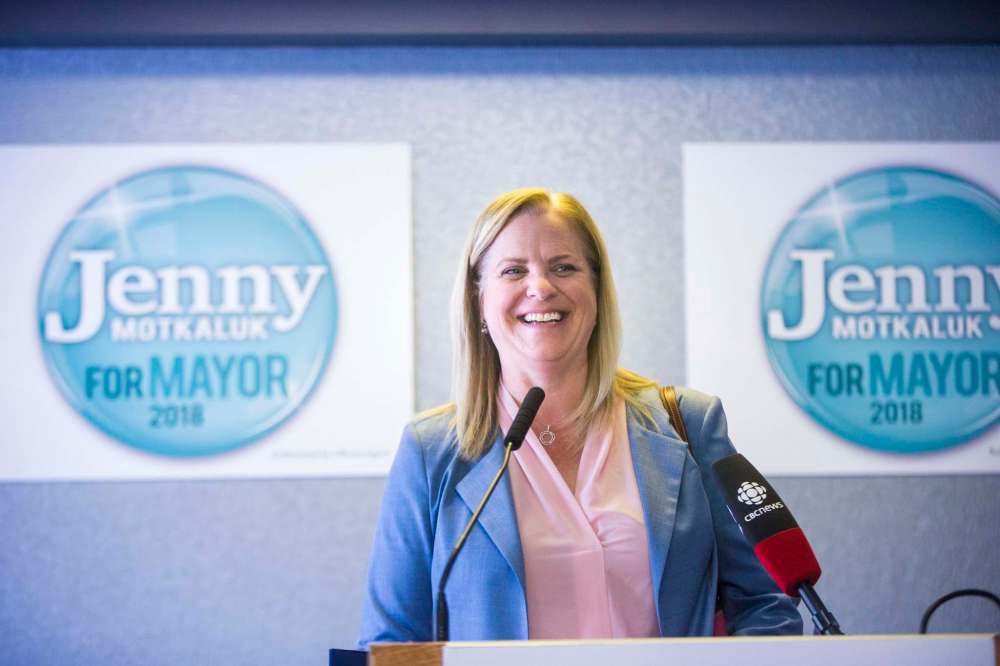
It’s little wonder that Motkaluk, a business consultant who is running in her second civic election, would want to distance herself from the Steeves’ wreck.
“The team I have is so much broader than all of that,” she says. “I’d love for somebody to ask me, ‘What’s your team look like?’ I think it’s one of our greatest strengths.”
The team she refers to is, fairly described, a pro-business coalition of Liberal and Progressive Conservative politicos, many card-carrying members of the two parties, who are well-known to people who have either raised or donated money to support a political campaign. Her team would include her husband, Trevor Sprague who, in a past political life, was a candidate for the Canadian Alliance in the 2000 federal election.
Motkaluk says that when the idea of running for mayor first came up over the winter, she and her husband focused on the extensive network of political strategists, organizers and fundraisers that they counted among their friends and acquaintances.
“I realized that we have a very strong network, and that’s what you need in civic politics,” she says.
The big question, she adds, was whether this network of politically motivated friends and associates could be mobilized to support her mayoral campaign.
“I had 200 face-to-face meetings with people who fit in all all kinds of different buckets. I was met with overwhelming enthusiasm,” she says.
She acknowledges the team includes some people — such as fundraiser and adviser Alex Robinson — who had prominent roles in the Steeves’ campaign, but also claims many people who toil behind the scenes of her campaign previously supported Mayor Brian Bowman.

Who is behind her campaign is perhaps not as important as how her campaign has begun: guns blazing.
Rumours of her interest in the job began to percolate in the spring. Motkaluk ran for city council in the Mynarski ward in the 2010 civic election, losing to Ross Eadie.
A failed electoral bid can be a valuable source of experience for any politician. In this instance, it has clearly encouraged Motkaluk and her supporters to hit the ground running with what appears to be an extensive and well-funded organization.
Motkaluk says she has 12 supporters out fundraising on a nearly full-time basis, and at least two paid, full-time staff working on her campaign. Those are impressive accomplishments for any civic politician, let alone one mounting her first run at an office as important as the mayoralty.
Confident and articulate, Motkaluk appears poised to serve as an effective foil for Bowman and his urbanist agenda.
While the incumbent mayor has proven to be a master of social media and a champion of core-area development and planning, Motkaluk seems focused on delivering a classic right-of-centre campaign concentrating on the issues that resonate in suburban wards: public safety, infrastructure, making life easier for business and controlling taxes.
“The mayor has made, in my opinion, a lot of mistakes,” she says. “He hasn’t provided a lot of leadership. He’s spent way too much time on his pet projects.”
Even though it’s still early in the campaign, Motkaluk has said enough to stake out a firm position to the right of Bowman.
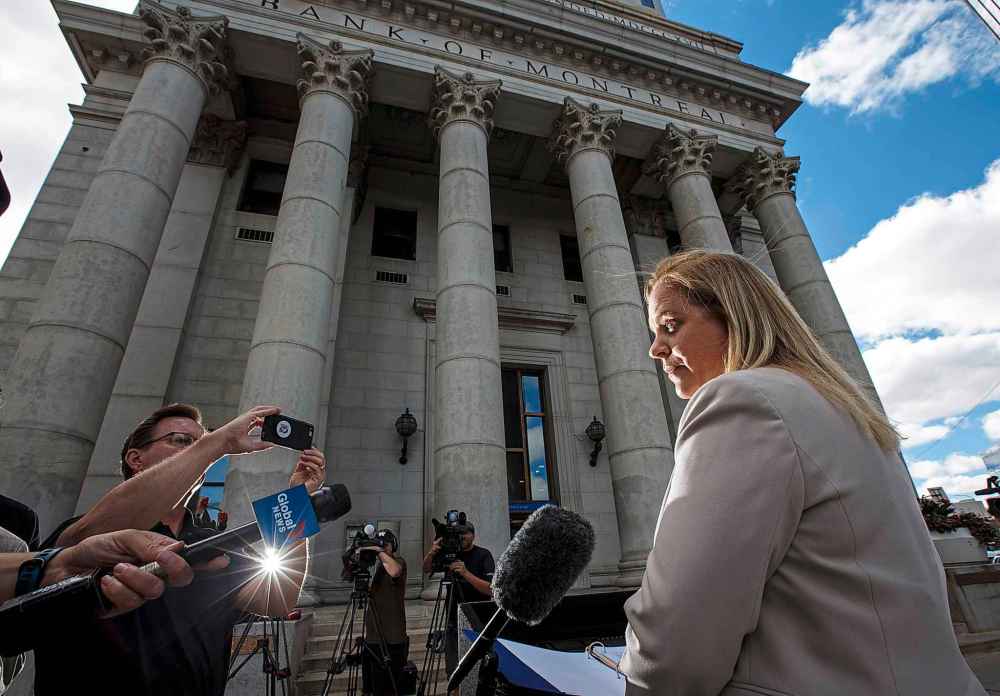
Early on, she proposed putting more police officers in Winnipeg schools including, for the first time, establishing a presence in elementary facilities. She also promised to stop all spending on the reopening of Portage and Main to pedestrians.
She would also like to see fewer police officers involved in special task forces, and more assigned to “proactive” street patrol. And she suggests putting officers on city buses, particularly on routes identified as high risk for riders and drivers.
Pro-police is a good stance to take, largely because over the last four years Bowman and council have put the Winnipeg Police Service on a tight budgetary leash to slow the growth in spending on what has become the costliest service in civic government.
Motkaluk also confirmed in an announcement Friday that if she becomes mayor, there would be no further development of the bus rapid transit system, something she described as a Bowman “pet project.” Asserting that she is “pro-transit but anti-BRT,” Motkaluk said she would put more buses on existing routes running more frequently to improve service and get people to their destinations faster and more reliably. “Dedicated roadways are not the solution to our transit problems,” she says.
On infrastructure, Motkaluk says she will be proposing a much bigger role for public-private partnerships (P3s) in the repair and rebuilding of roads within the city, something that should prove to be controversial.
City hall currently does not consider the long-term costs of maintaining and repairing each roadway in its infrastructure planning, she says. Under her plan, contractors would be asked to find better ways of building roads, and then bid to take on long-term responsibility for maintaining them.
She is also advocating as-yet undefined policies to help drive business investment; Bowman has created a “hostile” environment for business that is “thwarting” new investment and chasing potential growth opportunities to other provinces and cities, she says.
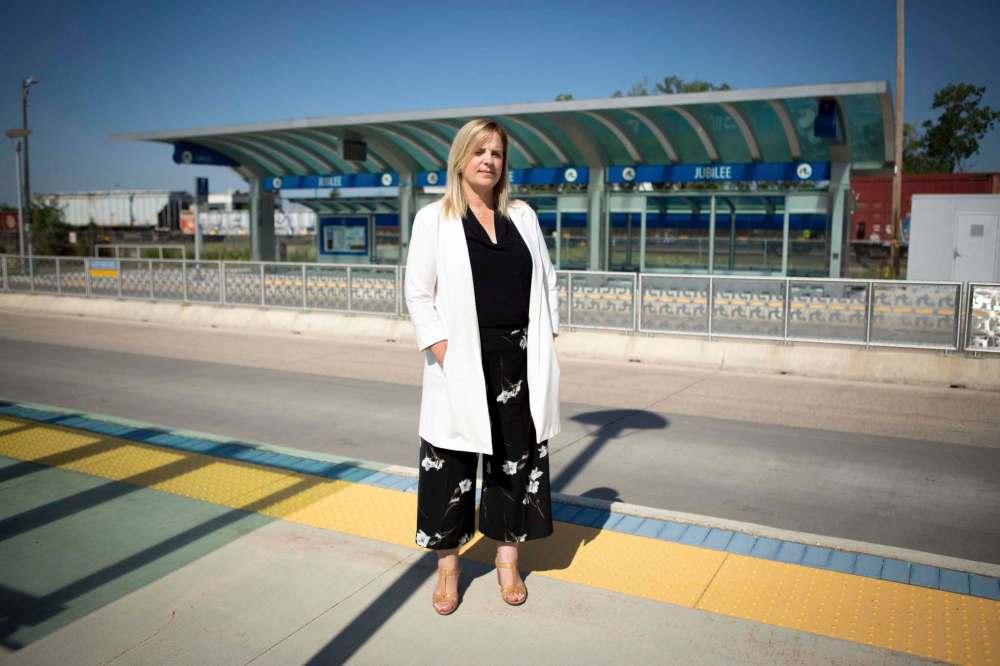
There is no doubt that a lot of people are going to find comfort in the policies Motkaluk is proposing. That does not mean they are invulnerable to attack. As is the case with challengers who have not spent any time serving in government, there are all kinds of loose ends surrounding her core pledges.
Her proposals on expanded policing, for example, aren’t accompanied by any details on how she plans to pay for them. Across the country, police forces are trying, at the bequest of their elected masters, to find ways of being better at a lower cost. Police costs have skyrocketed and many urban forces are scaling back. At the very least, she’s going to have to enunciate a more complete plan on how to pay for more patrols and cops in schools and on buses that does not involve starving other civic services.
Similar concerns surround her transit proposals. Even those who oppose additional investment in BRT will take issue with Motkaluk’s assertion that running more buses on existing routes — many of which do not have dedicated transit lanes and are already choked with rush-hour traffic — is unrealistic.
And at the risk of bringing up “Gord” again, Steeves made opposition to BRT the defining issue of his campaign in 2014. In the end, he finished behind BRT supporters Bowman and Judy Wasylicia-Leis, and third-place finisher Robert-Falcon Ouellette, who wanted to scrap bus rapid transit and instead transition to a light-rail system.
It also bears mentioning that Motkaluk has not yet tackled some of the most contentious issues in civic politics, including what to do with property taxes — she hasn’t said whether a freeze is in the cards — and growth fees on new suburban development, a central and controversial feature of Bowman’s first term.
Motkaluk will only say that the issue of growth fees “will be revisited.” She doesn’t want to discuss property-tax policies; a campaign spokesman says she is not yet ready.
Those concerns aside, Motkaluk appears as if she’s going to have a significant advantage that challengers trying to knock off incumbent mayors rarely enjoy in this city: a true head-to-head contest.
So far, there have been no rumblings about a third viable candidate registering for the race. In 2014, Bowman had to contend with Steeves from the right and Wasylycia-Leis and Ouellette from the left, along with a gaggle of lesser candidates whose major role was to choke the podium at public debates. It appears the so-called “progressive” forces in municipal politics who supported Wasylycia-Leis in 2014 and 2010 are going to sit this one out. A two-horse race means fewer split allegiances and less noise around policy debate.
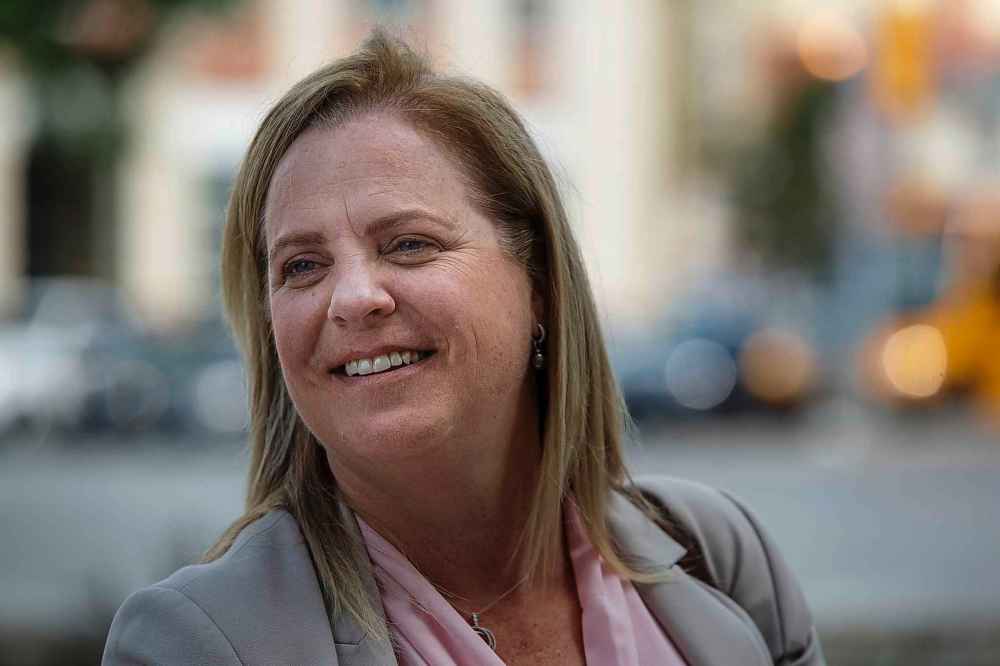
It also means Motkaluk can focus her attacks on Bowman without having to worry too much about others trying to get in on the action, or having to defend her platform against multiple critics. That is a huge luxury in a municipal campaign.
In opposing Bowman on key projects such as BRT and Portage and Main and pursuing a more traditional, suburban platform, she will provide voters with a clear choice. While Bowman discusses a more exotic, urbanist agenda, Motkaluk will be dishing out a steady stream of meat-and-potato municipal policy. And working hard to raise her profile in a bid for office that tends to skew in favour of incumbents.
“The one thing that I wish that everybody would know about me is that I’m a believer in practical solutions,” she says.
dan.lett@freepress.mb.ca

Born and raised in and around Toronto, Dan Lett came to Winnipeg in 1986, less than a year out of journalism school with a lifelong dream to be a newspaper reporter.
Our newsroom depends on a growing audience of readers to power our journalism. If you are not a paid reader, please consider becoming a subscriber.
Our newsroom depends on its audience of readers to power our journalism. Thank you for your support.





